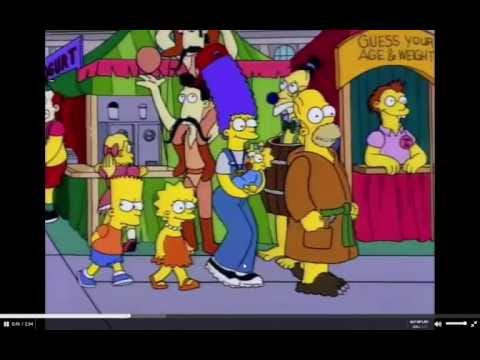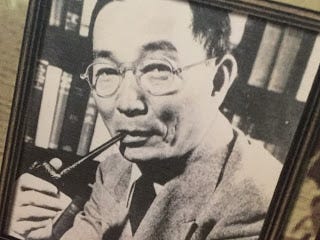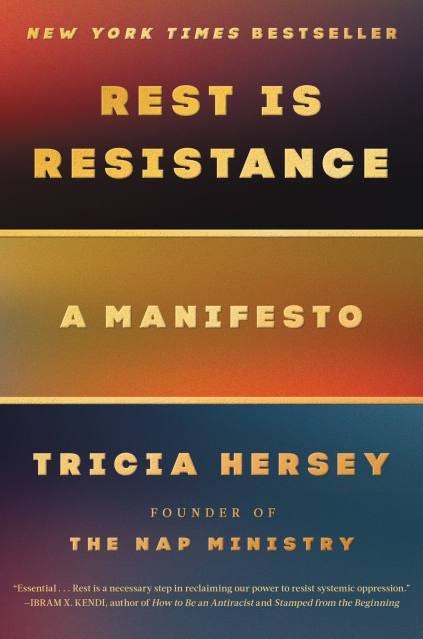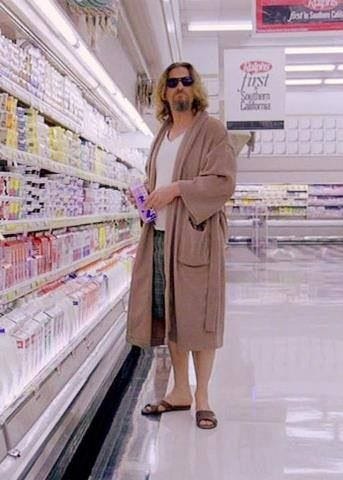As I wrote about in Part 1, it’s so hard to just do nothing. In modern American we have more ways than ever to distract ourselves from boredom and discomfort, principally our devices. But there’s no running from the basic human fact of dukkha, the general unease and dissatisfactoriness of life. And the harder we try, the less resilient we are to it. I think future generations are going to a lot of trouble with this.
And there’s our Western culture: the values, beliefs, and attitudes we learned from growing up in America. Culture is, as David Foster Wallace so memorably put it, is the water we swim in without knowing we’re swimming in it. And it takes someone outside of culture to show us the thing we’re doing without knowing we’re doing it.
So many busy fools making themselves useful
Lin Yutang (1895-1976) was a wry and humorous Chinese essayist who wrote a primer of Chinese Taoist and Confucian philosophy for Westerners in 1937 called The Importance of Living. The jacket cover summarizes:
Lin Yutang's prescription is the classic Chinese philosophy of life: revere inaction as much as action, invoke humor to maintain a healthy attitude, and never forget that there will always be plenty of fools around who are willing--indeed, eager--to be busy, to make themselves useful, and to exercise power while you bask in the simple joy of existence.
Sounds so different than our culture, eh? Lin contrasts the Westerner’s inability to see the fun in life with the Chinese ideal of the ‘scamp’ — an amiable loafer who wanders through life, learning, loving, living. Some quotes:
The American is known as a great hustler.
I suspect that the American hustler admires the Chinese loafer.
Those who are wise won't be busy, and those who are too busy can't be wise. The wisest man is therefore he who loafs most gracefully.
He who is not wanted by the public can be a carefree individual.
Efficiency, punctuality and the desire for achievement and success . . . are . . . things that make . . . Americans . . . unhappy and so nervous.
The American's inability to loaf comes directly from his desire for doing things and in his placing action above being.
The desire of American old men and women for action, trying in this way to gain their self-respect and the respect of the younger generation, is what makes them look so ridiculous to an Oriental.
It is characteristic of play that [play] is its own good reason.
Lin’s scamp is a good-natured dilettante, the insouciant dabbler, the irreverent loafer. In part one I described the “experience” of watching a screen as living as a “brain on a stick.”1 In contrast, the scamp’s life is profoundly embodied; happiness is “largely a matter of digestion.” The scamp enjoys their life: friends, family, music, and community.
Heroes of the Hustle
We can learn a lot about ourselves by looking at our heroes. Contrast the Chinese loafing scamp to the heroes we make for ourselves. Steve Jobs, Elon Musk, Martin Luther King Jr., Nelson Mandela, Greta Thunberg, Beyonce, Georgia O’Keefe, Michael Jordan, Simone Biles, Lionel Messi. The most accomplished, the richest, the earth-movers, the most famous, the best.
Who are your heroes? Are they people who do things?
Which is great, in one way. But it means we all aspire to greatness. And this desire to do something great makes us all, as Lin says, so very unhappy and so very nervous. As evidenced by our heroes, we prioritize action over being.
"Man is the creature who does not know what to desire, and he turns to others in order to make up his mind. We desire what others desire because we imitate their desires." - Rene Girard
Even our rest has become some sort of doing. The movement Nap Ministry’s tagline and new book is:
I’m not going to yuck someone else’s yum,2 but even doing nothing is now a form of active-ism? In other words, by relaxing, we’re still fighting, we’re still doing something?
The scamp would not see enjoying our own lives as resistance because resisting itself is exhausting. Resisting capitalism is still relating to capitalism. The scamp would just … enjoy life. Opt out. The scamp is too busy to fight the oppression, too busy … doing nothing.
I’m busy, busy, busy doing nothing.
Doing nothing, that’s the life for me.
For when I’m doing nothing, I’m busy doing something;
Something that suits me to a tee!
Because I’m busy, busy doing nothing,
I find I never find the time to rest.
Being busy doing nothing, I’m busy doing something.
Doing nothing is the something I do best! — Winnie the Pooh
The need to be needed
Lin observes that Americans hustle in order to gain self-respect and the respect of others. We need to justify ourselves, which should be antithetical to our Christian-Judeo heritage. Grace means you never have had to justify yourself, you’ve always be accepted and loved, from the very beginning. As Father Gregory Boyle puts God’s message, “You are precious in my eyes and nothing could change that. Performance doesn’t matter. Achievement doesn’t matter.”
But outside observers see that most of us Westerners get a very different message:
“You can't make a man a Christian unless you first make him believe he is a sinner.” — Lin Yutang
Even if you’re not Christian, you still get this cultural message: something wrong with you and you must fix it.
In the West, we have an intense desire to be needed. We don’t think we matter, unless we accomplish something. For the educated class (i.e. you and me), there’s intense messaging that you need useful, to have purpose.
“The only way to do great work is to love what you do. If you haven’t found it yet, keep looking. Don’t settle.” ―Steve Jobs
People over-identifying with their careers keeps people on the overwork/overspend cycle that is accelerating to environmental collapse. No one needs to be working as hard as Americans do and no one needs to be consuming as much as we do (4 times the carrying capacity of earth). Somehow we think we like it.
In addition, the presumption that people need to find their purpose is presumptuous bullshit, another test in a long line of tests3 to make sure we’ve achieved enough to be loved.4 As Elizabeth Gilbert put it:
And y'know that there is some times I think: I have no value. I'm just loved.
I love to offer that to people as an alternative to the American purpose-driven life that says you don't have any value unless you're serving a purpose and what is your purpose and all of us are born with a purpose and you have to find your purpose and then you have to change the world with that purpose. All of that just makes the tendons in my neck stand out and gives me hives of anxiety that I'm doing it wrong or that I might never get there or that I had a purpose but then I failed and it should have been this one. All of that is just so tremendously anxiety-producing.
It's so inhumane to teach people that that is what the point of their life is -- is to earn, somehow, their presence on this earth through purpose and through what they contribute and it better be good. It's just so mean.
The reality is that you are not required to have a purpose at all -- that's what it means to be loved. You are not required -- *nothing* is required of you. Nothing is required of you. You are part of all of this. And could not be if you tried. And that, I think, is real peace.
If you knew this, how much would you work?
How much would you spend?
What did you didn’t want to be important?
Could you imagine idolizing someone who didn’t do anything? So hard to in this culture.
But the West has had scamps too, counterweights to the rest of us busy and industrious idiots. 19th century French essayist Charles Baudelaire described the “flâneur”, the man of leisure, the idler, the urban explorer, the connoisseur of the street. in his essay The Painter of Modern Life (1863) as the dilettante observer. The flaneur strolled the streets of the city, relaxed and unscheduled, the urban wanderer who understood that life was to be lived.

For those of us with a more rural bent, there’s the irascible Huck Finn, “the juvenile pariah of the village.” Mark Twain lovingly describes Huck as “idle, and lawless, and vulgar, and bad.” The village kids loved him; their mothers “cordially hated and dreaded” him.
The old Widow Douglas adopts Huck Finn to educate and “sivilize” him. She whacks him on the head, scolds him, and preaches to him. Finally, he has enough and escapes with Slave Jim onto the Mississippi.
Have you been whacked on the head, scolded, and preached to by capitalism?
“It's lovely to live on a raft. We had the sky, up there, all speckled with stars, and we used to lay on our backs and look up at them, and discuss about whether they was made, or only just happened- Jim he allowed they was made, but I allowed they happened; I judged it would have took too long to make so many.”
“We catched fish, and talked, and we took a swim now and then to keep off sleepiness. It was kind of solemn, drifting down the big still river, laying on our backs looking up at the stars, and we didn’t ever feel like talking loud, and it warn’t often that we laughed, only a kind of low chuckle. We had mighty good weather, as a general thing, and nothing ever happened to us at all, that night, nor the next, nor the next.”
The scamp has faded in our post-industrial consumerist culture. We’re taught with innumerous examples that the busy and rich life is the good one. Again, culture is the values, beliefs, and attitudes we learn without knowing there was another way. But we have the great exemplar of modern American scampitude is the Dude:
The Dude, played by Jeff Bridges in The Big Lebowski, is “quite possibly the laziest in Los Angeles County, which would place him high in the runnin' for laziest worldwide.” The priorities of the Dude do not include his job, dressing well, or getting a nice apartment. The most important things to the Dude are bowling league, followed by weed. And perhaps his rug.
Whatever happens to the Dude — having his living room rug urinated on, being knocked out, having a ferret thrown into the tub while bathing — the Dude abides. As one commenter put it:
Everything that happened in the movie – all the violence and intimidation and threats of death – got in the way of what the Dude would rather be doing: nothing. There was no lesson for the Dude to learn or fear for him to conquer or profound realization for him to come to because he’s perfectly happy to just exist.
If you want to talk about counter-culture, the Dude wants nothing, and has nothing to learn. He’s not into personal growth. And unlike all the vanlife, digital nomad, or yoga influencers on Instagram, he isn’t going to make a living trying to sell the scamp lifestyle to you. The Dude is just trying to lay low. If anything, he’s trying to be as little influence as possible.5
The distinction between Buddhism and Taoism is this: the goal of the Buddhist is that he shall not want anything, while the goal of the Taoist is that he shall not be wanted at all.” — Lin Yutang, The Importance of Living
We’re so very busy because we want to be wanted. We want to be important, like our heroes. But what if you, like the Dude, didn’t want to be important at all? How much would you work? How much would you spend?
How much would you do?
“Today the sky is clear, the air is fresh and the kind breeze is mild. Truly enjoyable it is to watch the immense universe above and the myriad things below. Wang Hsichih, "The Orchid Pavilion," CE 353
Be like boy!
“[Philosophy] is probably the purest of all our mental pleasures and yet
I would exchange it for a well prepared meal.”
Especially when it’s a nap!
School, college, grad school, “good” job, nice house, attractive partner etc
We talk a lot about this in FF2. “Do What You Love” devalues the working class and necessary labor. In other words, it’s status privilege working as social currency. The article asserts that DWYL devalues actual compensation and working conditions because if you’re doing what you love, it’s not actually labor, according to this article on jacobin.com. DWYL or “finding your purpose” is self-centered privilege disguised as career advice. FYI: Steve Jobs grew up quite well-to-do.
Ironically, there is a religion about the Dude (Church of the Latter Day Dudes), and Jeff Bridges wrote a book with noted Buddhist monk Bernie Glassman about we can learn from the Dude called, The Dude and the Zen Master. Forming a church or writing a book are things the Dude would never do.









Love this reflection! Will come back to this again. Even doing nothing now becomes something ‘cool’ that we are striving for.